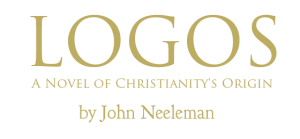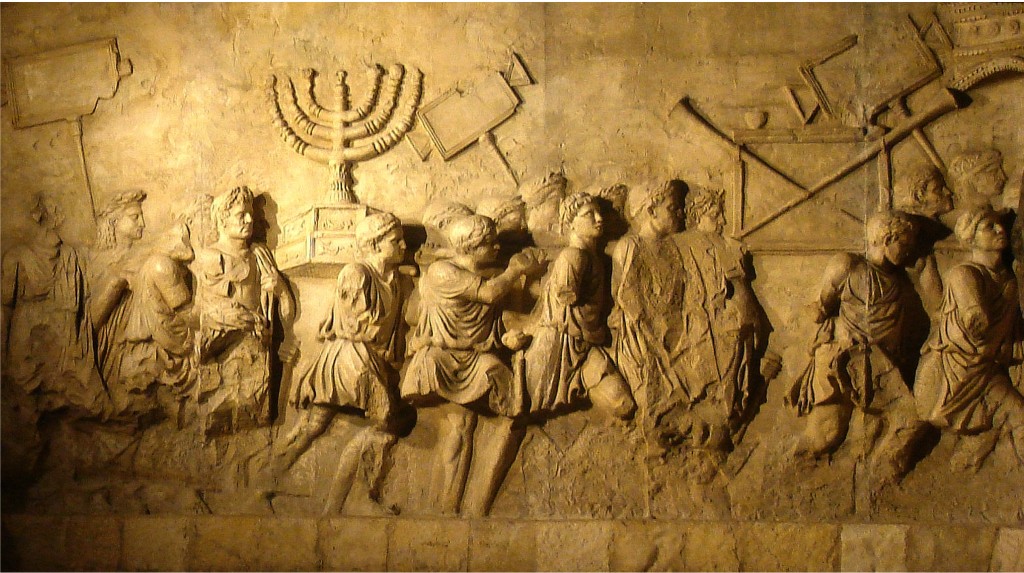Yesterday I was fortunate to see Reza Aslan speak, for the second time, this time at the Temple De Hirsch Synagogue here in Seattle. Reza Aslan is a Muslim who has written a famous biography of Jesus. I enjoyed the book, Zealot: The Life and Times of Jesus of Nazareth, and I agree that the historical figure that he portrays is a plausible extrapolation from the considerable facts that we know about first century Palestine. (Zealot was not a source for my novel, Logos, as my book was finished when Zealot was published, but generally I share his interpretation of the historical Jesus.) As Aslan recognizes, while we know a lot about first century Palestine, we know almost nothing about the historical Jesus per se. To quote Harold Bloom, “there was an historical Jesus.” Apparently, like legions of other Jews in the first century, he was murdered by the powers that be because he was rebelling against an unjust society. That is about all we really know about Jesus.
Zealot is a famous, bestselling book, but it was Aslan’s formidable oratorical skills and charm that made it so. Shortly after the book was issued, Fox News anchor Lauren Green interviewed Aslan, and her first question was, “You’re a Muslim, so why did you write a book about the founder of Christianity?” Standing alone the question itself would have disgraced both Green and Fox. The evident religious partisanship was awful—Aslan’s religious affiliation has nothing to do with his qualifications to write a biography of Jesus. But in response to the question, he adroitly demonstrated the intellectual rigor, integrity, and indeed affection that he had brought in writing his book. The interview went viral, and Zealot, which had been selling “steadily,” became an immediate number one bestseller and an instant popular classic.
Yesterday those oratorical gifts were on full display at Temple De Hirsch. My favorite part may have been the personal story that he told about how he became a Muslim. He was born in Iran, to a privileged family: a father who identified himself as an atheist, and a mother who was a lapsed Muslim. In 1979, his father foresaw the rise of Ayatollah Khomeini, and its consequences to secular Iranians, and the family fled to the United States and settled in San Francisco. Aslan, viscerally attracted to religion, and wanting to fit in, converted to a conservative protestant branch of Christianity; then he was instrumental in converting his mother to Evangelical Christianity. But in college at Jesuit run Santa Clara University, as he was intensely studying the New Testament and placing it into historical context, his faith began rapidly slipping away (I strongly identified with this part of his story).
Here is the part that I love: The Jesuit priests there suggested that Islam may provide him a more satisfying “metaphor” for expressing his faith. He followed their advice and investigated the religion of his ancestors, and converted.
Aslan insists that this choice does not represent a belief that Islam is any more “true” than Christianity or any other religion. He says that religion and faith are two different things. He views religion strictly as man-made metaphor; Islam’s metaphor for God simply better expresses his faith than the Christian one does. But he recognizes that this perception on his part is entirely subjective and personal. He says that to Islam (and Judaism), God is “unity”: the universe is God, including all of us humans. To Christianity God is a man; God incarnate: Jesus. Islam’s God feels better to him. That is all.
Religious affiliation – or not – I have learned, is much about identity. Not altogether unlike why we may root for the Seahawks or the Red Sox, what car we drive, or smartphone we sport. Apparently identity, for better or worse, is hugely important to all of us humans. Not long after I began discussing religion on the Internet, I discovered that the line that separates those who choose to call themselves “unbelievers,” “atheists,” and “agnostics,” and many who choose to call themselves “religious,” is ultra-thin. I have chosen to call myself an unbeliever, and like Aslan and many other self-identified religious people, I regard religion as demonstrably, fully metaphorical. I am also viscerally interested in religion, and, like Charlie Citrine in Humboldt’s Gift, I hope for a metaphysical element to the universe on purely aesthetic grounds. But I am an unbeliever.
Yesterday some Muslims attended the Aslan event. There was an extended question and answer session, in which he encouraged comments, and I was very interested to hear some American Muslims express gratitude to him for the role model he has provided them as an American Muslim. Actually, I am aware that many Americans affiliated with other religions including Christianity are similarly tormented about how to express their own choice to identify with a religion that they regard as metaphorical, and as such is important to them. This includes many members of my own Mormon religious tradition with its official pre-Enlightenment “there no God but my God” ethos. My sense is that because Aslan is a Muslim, and Islam has a radioactive quality to many Americans, many Americans who could obtain inspiration from his role model, including a way to express their religious affiliation, are unaware of it, which is really too bad.

